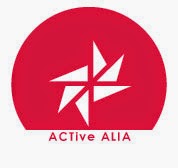Roxanne presented an interesting paper
Measuring & evaluating return on investment :
Roxanne has written up her impressions of the conference which should be of interest to all of us justifying why our libraries exist and what value we bring to our parent agency
Peter Rathjen, Vice-Chancellor, University of Tasmania opened the conference with a range of provocative thoughts on universities, information, libraries and relevance. He noted the importance of trends in research – particularly the strengthening of cross disciplinary in the last decade. Provocatively he suggested that if we thought about what are the great libraries there are none in Australia.
Significant concepts explored were:· prestige· Collections including wider community access· Space· KNOWLEDGE
Libraries were encouraged to evaluate their contribution against these aspects.
The environment is characterised by changing resources. There has been an evolution from books and scholarly journals to a demand for organisational contribution and knowledge skills. He noted that changing behaviour of researchers meant they were no longer using libraries physically as part of their research mission
He saw a renaissance for libraries in their roles of supporting e repositories and contributing to access for the community including access to research outputs through repositories
Mapping the Library he proposed an evaluation as follows:
key assets
|
Research
|
Teaching
|
Prestige
|
++
|
+
|
Space
|
-
|
+++
|
Collections
|
+++
|
(+)
|
Workforce
|
++
|
+++
|
He suggested that disciplinary differences may be significant.
In moving to a world full of data intensive equipment, data and information will be the key assets for research programs. There will need to be an investment at a new scale. The nation will require national approaches, broad access protocols, and physical access. We all will need to think internationally. Universities will have value in maintaining data that is not available internationally; the world will come to you because of these strengths. This will be a key aspect in attracting funding.
At the University of Tasmania a program to collect data across the island through broadband to achieve value and insights to give new answers has been developed, It requires very significant funding to achieve systems to set up data collection, manage and develop analytic reports.
Key issues for academic libraries include:· measuring· bibliometrics and usage.· segmentation is the key disciplinary level research vs. teaching· a voice for the broad research community.· Knowledge insights
There is a strong need to connect to senior management including Vice Chancellors and Research offices (including on issues such as infrastructure, bibliometrics, ranking strategies, IT Data management).
To discover more check out Roxanne's blog entry on the conference
http://roxannemissingham.blogspot.com.au/2012/12/measuring-improving-library-value.html
Karna O'Dea
Active ALIA Convenor

